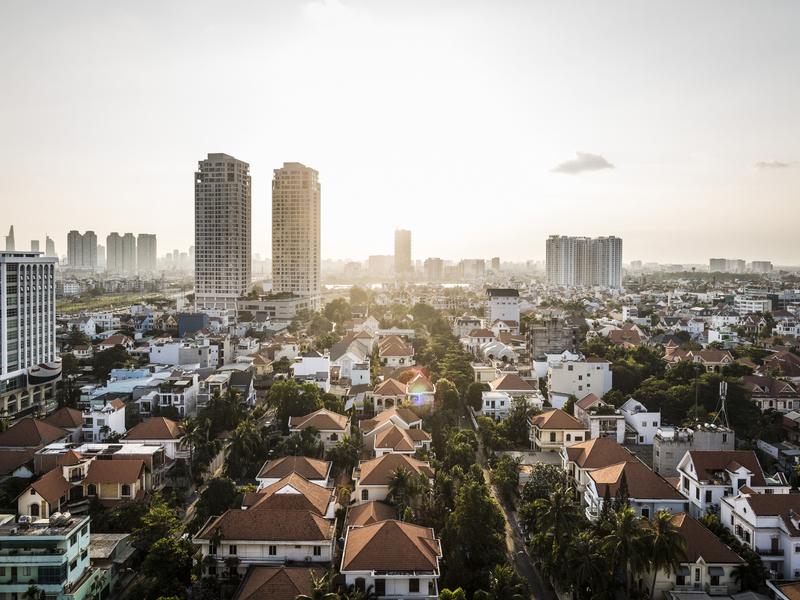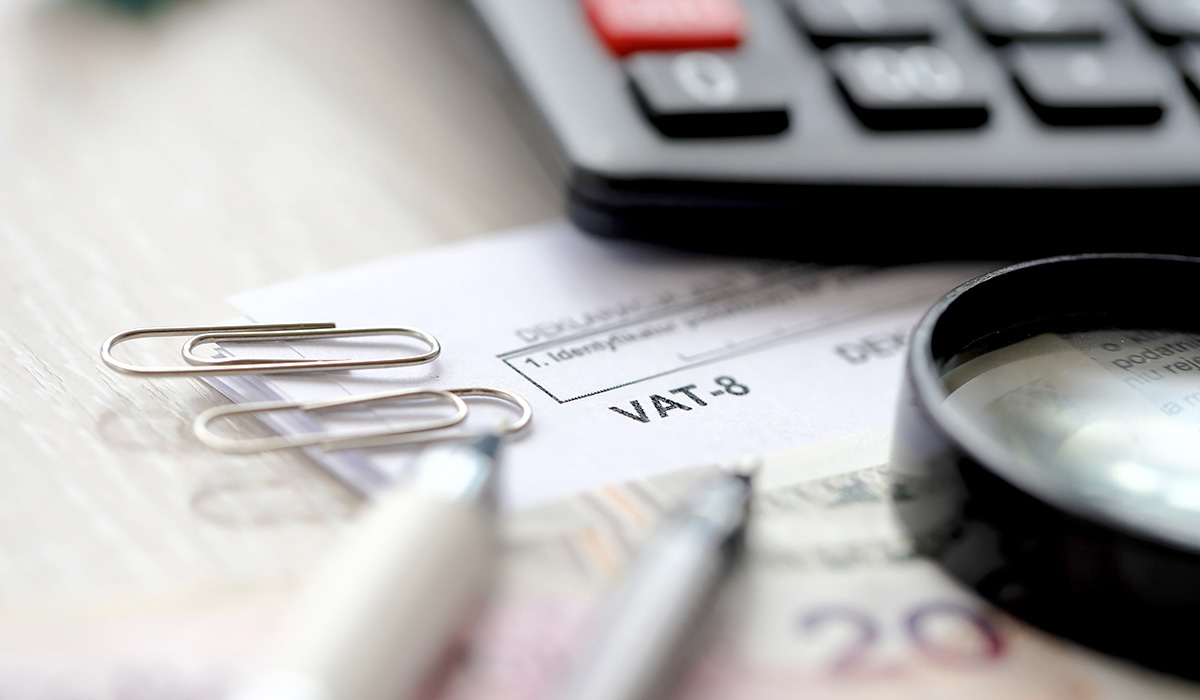

Vietnam has emerged as an attractive destination for foreign companies seeking new opportunities and markets. As you navigate the complexities of doing business in this vibrant country, one key aspect you need to be well-versed in is value-added tax (VAT) and the potential for VAT tax refunds.
In this comprehensive guide, we will walk you through the ins and outs of VAT in Vietnam, what a VAT tax refund entails, the requirements for eligibility, and how you can streamline the process.
Quickly understanding VAT tax refunds in Vietnam
While most goods and services in Vietnam are subject to Value Added Tax (VAT), certain eligible categories benefit from a preferential rate, with the standard rate set at 10%. Foreign-invested enterprises (FIEs) are liable for VAT on domestic transactions, which include the procurement of goods, services, and capital assets. For these companies, effective VAT management is essential, not only to ensure regulatory compliance but also to maximize opportunities for cost recovery and maintain healthy cash flow. Fortunately, Vietnam allows foreign companies to claim a VAT tax refund under certain qualifying conditions.
What is value-added tax (VAT) in Vietnam?
In Vietnam, Value-Added Tax (VAT) is a fundamental consumption tax, applicable to a wide range of goods and services, irrespective of residency. However, exports and services to international customers are usually VAT-exempt.
VAT in Vietnam operates as an indirect tax on local consumption, with tax collection occurring at every stage of production and distribution, ultimately impacting the final consumer. For imported goods and services, VAT is calculated based on the duty-paid value, and importers must settle VAT and import duties during customs clearance. In specific cases, VAT may be computed on the selling price, inclusive of special consumption and environment taxes.
Vietnam’s VAT system is governed by the country’s Law on Value-Added Tax. Companies determine their VAT liability using either the direct method (primarily for specific industries like gold and gemstone processing) or the more commonly used indirect (credit) method.
What is a VAT tax refund in Vietnam?
A VAT tax refund in Vietnam signifies the reimbursement of value-added tax (VAT) to eligible taxpayers from the state budget under specific circumstances. These refunds aim to rectify overpayments or reduce tax burdens for various entities.
Requirements for a VAT tax refund in Vietnam
To secure a VAT tax refund in Vietnam, businesses must:
- Submit an application dossier to the relevant tax authority.
- Ensure compliance with tax laws and use commercial banks for transactions.
- Obtain pre-approval for refunds within six working days (in certain cases).
- Be prepared for potential tax audits during the refund process.
Required documentation comprises the Enterprise Registration Certificate (ERC), a company stamp, Investment Registration Certificate (IRC), accounting records, a designated bank account, and a correctly completed refund application. Be aware that the refund process typically spans two to six months and frequently entails a tax audit.
What is the regime for corporate VAT refunds in Vietnam?
Corporate VAT refunds in Vietnam are available to businesses that meet specific criteria, including but not limited to the following:
- Credit Method Usage – Businesses adopting the credit method for VAT declaration and engaged in the production or sale of goods or services subject to VAT are eligible for VAT refunds.
- Investment Phase – Enterprises currently in the investment phase and having initiated their operations can apply for VAT refunds.
- Accumulated VAT Credits – Businesses accumulating creditable input VAT exceeding 300 million Vietnamese dongs (approximately $12,860) on goods and services purchased for business activities qualify for VAT refunds.
While these conditions offer clear guidelines, the VAT refund process can be intricate, and enterprises may encounter potential risks and obstacles along the way.
VAT refund application
When applying for a VAT refund in Vietnam, enterprises should be mindful of common issues related to licenses, charter capital, and business operations:
- Investment Period – Ensure that the registered investment period aligns with the actual completion time. If input VAT falls outside the investment timeframe, it won’t be refunded but can be carried forward.
- Conditional Business Lines – Verify that your investment projects meet the requirements for conditional business lines as mandated by laws and regulations. Obtain any necessary sub-licenses according to the prevailing rules.
- Charter Capital – Contribute the required registered charter capital and provide valid evidence of capital contribution, whether in cash or assets.
Refunds under the investment phase
During the investment phase, revenue generated from selling samples might face scrutiny from local tax authorities. Tax officers may attempt to limit the VAT refund period related to testing revenue and potentially reduce the total refund amount after a tax audit.
Input VAT from purchases
Issues often arise concerning the disallowed refund or credit of input VAT. These issues may be due to non-compliance with legal regulations for supporting documents or failure to meet non-cash payment requirements. Incomplete payments for goods and services purchased for investment projects can lead to non-compliance, especially when enterprises engage in both business operations and investment projects without proper record-keeping.
What are the common VAT refund errors?
Mistakes on VAT refund applications can lead to delays or rejections. The common errors to avoid include:
- Unclear Business Status – Failing to block the requested VAT refund amount before commencing business operations can lead to complications.
- Bank Account Registration – Not registering the designated bank account for receiving the refund amount or complying with e-tax payment regulations as per the law
- Incorrect VAT Declarations – Non-compliance with VAT declaration forms can hinder the refund process.
- Unjustified Tax Return Adjustments – Making multiple tax return adjustments without valid reasons when dealing with the tax authority can lead to complications and potential rejections.
VAT tax refund in Vietnam: 3 Challenges foreign companies face
1. Issues with VAT invoices and documentation
One of the most frequent problems faced by foreign companies is the submission of invalid or incorrectly issued VAT invoices. Vietnamese tax authorities have strict requirements regarding the format and content of invoices. Even minor errors, such as spelling mistakes, missing tax codes, or inconsistencies in company names, can lead to the rejection or delay of refund applications.
2. Unclear eligibility and complex requirements
Foreign companies new to the Vietnamese market often struggle to understand whether their business activities qualify for a VAT tax refund. This is especially true during the initial stages of operation when expenses are high, but revenue has not yet been generated. Furthermore, the volume of required documentation, including contracts, tax registration certificates, customs declarations, and payment evidence, can be overwhelming.
3. Increased scrutiny for first-time claims
Tax authorities tend to apply greater scrutiny to first-time VAT refund applicants. As a result, the processing time may extend beyond the expected timeframe, especially if audits are triggered or further clarification is needed. This uncertainty makes preparation and accuracy even more essential for foreign enterprises.
VAT tax refund in Vietnam: 3 Best practices to improve the chance at a refund
1. Ensure accurate recordkeeping
The foundation of a successful VAT refund claim lies in meticulous documentation. Companies should verify that all VAT invoices are properly issued and correspond with other supporting documents, such as contracts and payment vouchers. Consistency across records is essential to meet the expectations of Vietnamese tax authorities.
2. Conduct regular internal reviews
Routine internal audits of VAT records can help identify discrepancies early, allowing businesses to address potential issues proactively before they escalate during the refund process, thereby ensuring smoother compliance and financial accuracy.
3. Be prepared for delays and follow-up requests
While the official timeframe for processing a VAT tax refund in Vietnam is up to 40 working days, delays are common, especially for new applicants. Being ready to respond quickly to document requests or inquiries can help avoid further delays. Understanding the potential for extended processing times and planning accordingly is key to managing expectations.
How Can We Help- Taxation Service
At Premia TNC , we specialize in Vietnamese tax regulations, particularly VAT tax refunds. We offer expert guidance on navigating the intricate tax landscape and optimizing VAT refunds. With a deep understanding of Vietnamese tax laws, we ensure compliance and identify VAT refund opportunities specific to your business.
Ready to optimize your VAT tax refunds and ensure compliance in Vietnam? Contact us today for a free consultation. Our experts are here to help you make the most of your financial operations in the Vietnamese market.
Who is eligible for VAT tax refunds in Vietnam?
Various entities, including exporters, businesses with new investment projects, and those involved in specific programs or projects, may be eligible for VAT refunds based on specific criteria.
What are common VAT refund errors to avoid?
Common errors include unclear business status, issues with bank account registration, incorrect VAT declarations, and unjustified tax return adjustments. Avoiding these errors is crucial for a successful refund process.
















